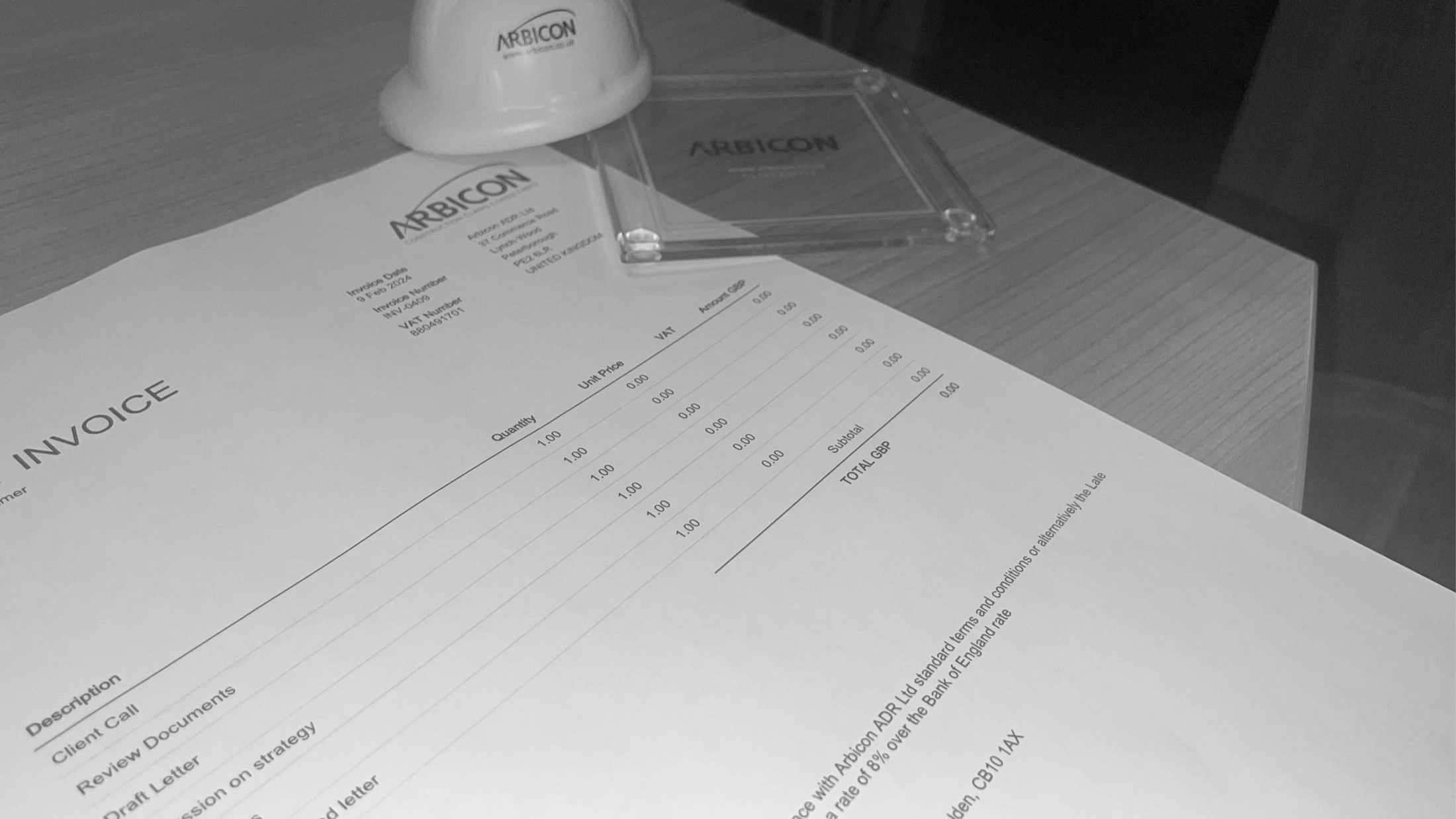09-02-2024
Introduction
It has not been uncommon for construction contracts to find a clause that reads similar to the example below:
The final date for payment shall be 28 days following:
a) the Due Date; or
b) receipt of the Contractor's valid VAT invoice …
whichever is the later.
Pursuant to this clause, the date by which payment must be made hinges on receipt of a VAT invoice. As such, if the contractor is delayed in the issuing of the VAT invoice, the date by which payment must be made is similarly delayed. But is this permissible?
The short answer is no. Recent case law determinations have established that such a clause fails to comply with the statutory payment provisions of the Housing Grants, Construction and Regeneration Act 1996 (the “Construction Act”), thus rendering the clause invalid.
The Construction Act - Key Aspects of a Valid Payment Mechanism
Pursuant to the Construction Act, a payment mechanism must include a number of key provisions in order to be valid.
The provisions concerning the date for determining when a sum should be paid mandate that a construction contract must include:
- an adequate mechanism for determining what payments become due under the contract, and when; and
- a final date for payment in relation to any sum which becomes due.
The parties are free to agree how long the period is to be between the date on which a sum becomes due and the final date for payment.
The provisions concerning the obligations to notify the sum due to be paid mandate that:
- a notice must be given not later than five days after the payment due date specifying the sum due to be paid by the final date for payment and the basis for calculation of that sum;
- if intending to pay less than a notified sum, the payer may issue a payless notice to the payee;
- The notified sum must be paid by the final date for payment.
The Construction Act is silent on VAT invoices.
VAT Invoices for the notified sum
As already stated, it is not uncommon for contracts to state a requirement for the payee to issue a VAT invoice after the due date for the notified sum, prior to being paid. But why?
Sometimes an invoice is requested as part of an accounting process. However, often the provision serves as little more than a mechanism to delay payment. After all, the submission of a VAT invoice requires the payee to await receipt of the payment notice before the VAT invoice can be prepared. Furthermore, the payee may be understandably reticent to issue any invoice if they disagree with the sum notified by the payer. Also, the payee may not realise that they need to reissue an invoice if they have already issued one as part of their initial application for payment.
The Case Law
Payment practices within construction contracts have seen significant scrutiny and evolution in recent legal rulings.
In so far as it relates to the issue within this article, the two key cases are Rochford Construction Ltd v Kilhan Construction Ltd [2020] EWHC 941 (TCC), and Lidl Great Britain Ltd v Closed Circuit Cooling Ltd (t/a 3CL) [2023] EWHC 2243, both of which shed light on critical aspects of payment mechanisms and their requirements to align with the statutory requirements of the Construction Act.
In Rochford, the TCC established that it was permissible to tie the due date to receipt of an invoice or notice. However, the same could not be said for the final date for payment, with the TCC determining that this must be tied to the due date.
In Lidl, the TCC examined a payment clause similar to the example given in the introduction to this article, where the final date for payment was tied to the later of (a) the due date or (b) the receipt of a valid VAT invoice. The TCC reinforced the decision in Rochford and ruled that such provisions were non-compliant with the Construction Act, thereby determining that the final date for payment must be fixed from the due date alone and cannot be made contingent upon the receipt of invoices.
These rulings underscore a critical difference between determining the due date and establishing the final date for payment. Whilst mechanisms for determining due dates can be conditional on receipt of an application or invoice, the mechanisms for determining the final date for payment cannot, and must be a fixed period from the due date, ensuring clarity and certainty for all parties involved.
The Implications
Pursuant to the aforenoted case law, a contractual clause making the final date for payment conditional on the submission of a VAT invoice is unenforceable.
Any non-compliant clause will then be replaced, and made good by the relevant statutory payment provision within the Scheme for Construction Contracts 1998 (the “Scheme”).
This may have unexpected consequences for the parties. The Scheme provides the period between the due date and the final date for payment is 17 days. As such, this could have the effect of bringing forward the final date for payment if the invalid and supplanted contract clause stated a longer period. In turn, this would also allow interest to accrue earlier; or could render a payless notice served on the contractual timeframe to be too late under the Scheme timeframe, thereby invalidating the notice and opening up the payer to a risk of a potential “smash and grab” adjudication.
For the payer, it is clear that payment provisions must be carefully drafted to avoid falling foul of the Construction Act. Whereas, for the payee, any non-compliant payment provision should be challenged to prevent undue payment delays.


